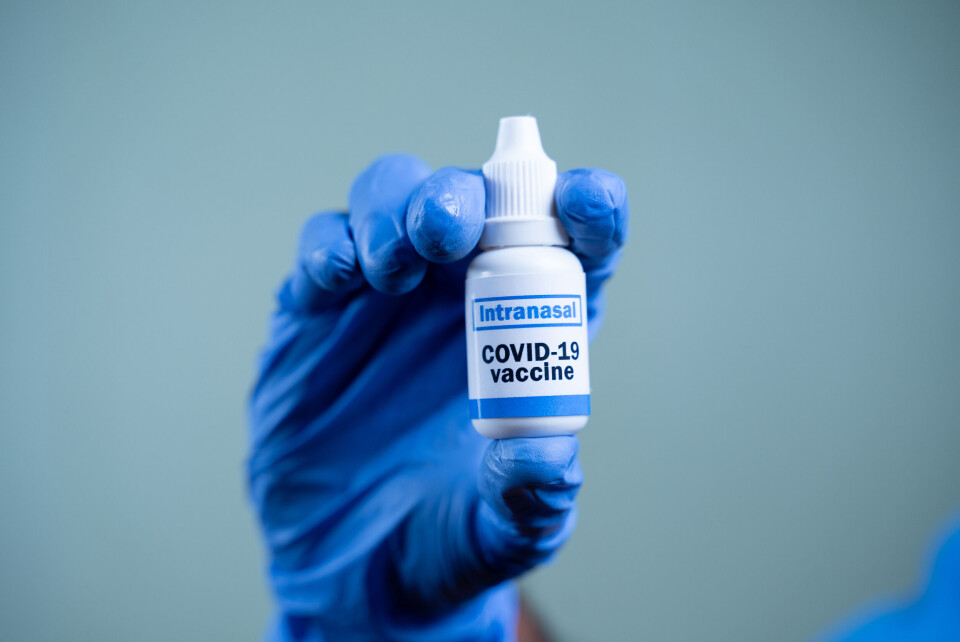-
British ‘Puppet Master’ conman in French jail wins phones back on appeal
Robert Hendy-Freegard was given a six-year sentence after hitting two gendarmes with his car
-
Alleged British hacker in jail in France offers to help with police data breach
Recent attack targeted police files
-
‘Elves crossing’: Normandy village installs fun roadsigns for Christmas
Heuland has also cleared its airspace to ensure safe passage for Santa Claus and his reindeer
French Covid nasal vaccine could be more effective than jabs
Researchers say it would reinforce the body’s mucus defences enabling the body to block the virus before it gains entry to the body

Nasal vaccines may be used to fight against Covid in the future, as French research bodies work to develop a way of optimising the nose’s mucus defences against the virus.
Teams from the Institut Pasteur and French laboratory Theravectys began working on a vaccine administered through the nose and without a needle because the protection offered by intramuscular injections can only go so far.
“mRNA vaccines [such as Pfizer and Moderna] are a small miracle, but they have their limits,” Éric Tartour, immunology professor at the Georges-Pompidou hospital in Paris, told Ouest-France.
This is because “they do not produce local immunity. You can be vaccinated but still infected by the virus, which will proliferate in your nasal mucus. And you can pass it on, even if you are asymptomatic,” he added.
This is because traditional vaccines only lead to the generation of antibodies in the blood.
A nasal vaccine would aim to reinforce the body’s mucus defences, which have their own antibodies called Immunoglobulin A (IgA). Stimulating this defence system would enable the body to block the Covid virus before it gained entry to the body, preventing not just serious illness but also the initial infection.
A previous Covid infection does lead to the protection of IgA antibodies, but “we do not know how long they last,” Prof Tartour said. “That might depend on the severity of the infection and the viral load.”
“If we want to stop the epidemic, which is a public health duty, we will need nasal vaccines,” Prof Tartour said. “As long as vaccines fail to prevent the transmission and therefore the spread of the virus, we will be under threat from new variants.”
Pre-clinical studies of Theravectys’ nasal-administered vaccine have suggested strong efficacy, with the viral load being drastically reduced along with pulmonary inflammation and tissue injury.
However, researchers are currently testing nasal vaccines to determine whether they would be effective against the Omicron variant.
Of the 300 vaccines which are being developed worldwide in the fight against Covid, only around 20 can currently be administered nasally.
“Manufacturers are not often in the habit of making vaccines in the form of a spray, even though a nasal spray against flu is available in the US,” Prof Tartour said.
He added that it is necessary to “invest more money in innovating vaccine research.”
Related articles
France reduces time gap to get Covid booster jab to keep health pass
More leading scientists in France say Omicron could be good news
Covid France: Latest on Omicron, hospitals and a possible fourth dose
























